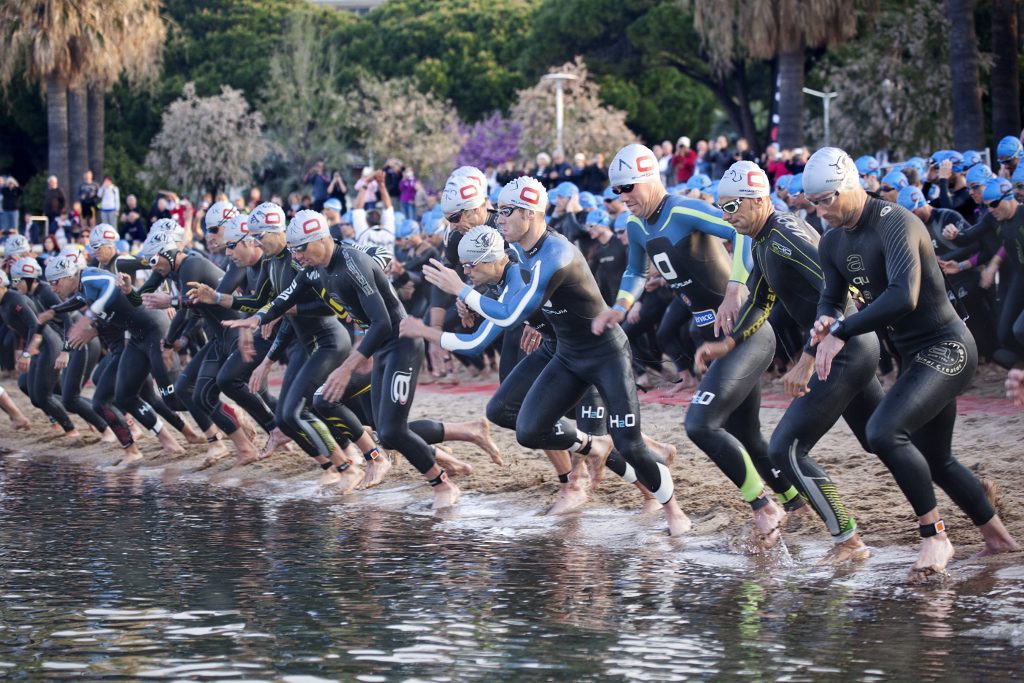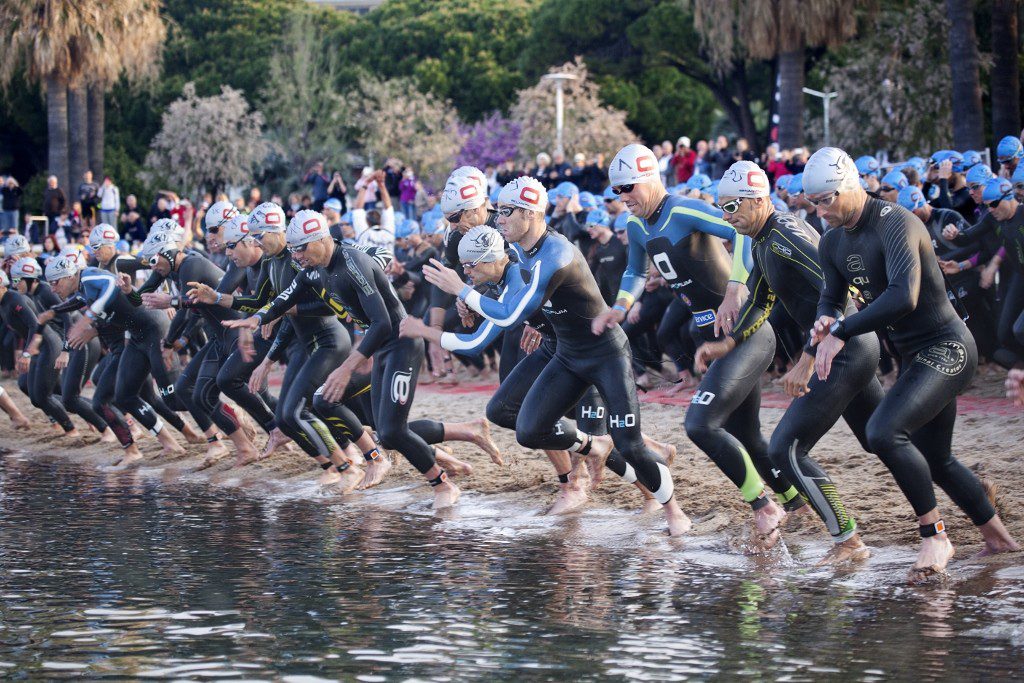Conquering your fear of the open water swim
Tips to become more confident so you will not only survive but have a great open water swim.

— By Jessica Adam
There is no doubt that the open water swim of a triathlon is what many triathletes find the most intimidating portion of the race. Considering that it is the first event, it doesn’t help that you also have pre-race jitters coursing through your body! The following are some tips to help you feel more confident that you will not only survive but have a great open water swim.
1. Practice, practice. You need to get in the open water whenever you can. The more you get in, the more you will get used to the feeling of it and eventually you will start to feel comfortable and confident. Don’t avoid it and wait until the week before your race. Always swim with a buddy or a group.
2. Get a wetsuit that fits well. Many athletes who are competitive open water swimmers and triathletes will get a very snug wetsuit to aid with performance; however, this may not be ideal if you are trying to get over anxiety issues with the open water swim. If the suit is too restrictive, and you are really nervous you will find it hard to breathe. This could lead to panic which is what we are trying to avoid. That being said, you don’t want it too loose either as too much water can get in. You may have to try on many different styles and makes until you find the right one for you. Ask for help from someone experienced in wetsuit fitting.
3. Know your swim time. It is really important to know what your approximate swim time will be for the given race you are doing. Most people who are afraid of the swim think that starting at the back of the pack is the answer. Unless you think your swim time would warrant this it may not be the best plan of action. You will end up bumping into many slower swimmers who are potentially not going in a straight line. At the start line, ask some people around you what they think they will do the swim in and find people of similar ability to you and hopefully this will cause less traffic around you and maybe even get you a good draft.
4. Know the swim course. If it’s possible, try to practice in the actual body of water the race is going to be held in. Go during different conditions i.e. wavy, smooth, different currents etc. You want to be prepared for anything. Also, try to go at the same time of the race start to see where the sun will be and to scope out objects easy to sight on the shore. You will probably use the buoys on race day but it doesn’t hurt to have a backup plan. Being prepared will lessen the anxiety of the swim.
5. Try not to box yourself in. Try to position yourself so that you can get free space if you need it. This may mean starting on the outside edge.
6. Seek a coach’s advice. Hire a coach to critique and help improve your swim either in the open water, at a pool, or ideally both. Improving your swimming ability will give you confidence and they will give you race specific strategies to get you to the start line with less anxiety.
7. Use visualization techniques. Both before training swims and your races, find a quiet spot to sit and mentally go over your swim in your head. Visualize how you want to feel at the start line and in the water. Go through your swim, think about what you’ve learned and visualize swimming the course. Think about the positives but also go through what you fear, like getting bumped by someone and visualize how you will handle the situation with calm energy. Picture yourself completing the swim successfully and moving on to the bike!
The common thread in these tips is that the key to overcoming your open water fears is to be prepared. People tend to avoid activities that make them feel uncomfortable but this is the wrong attitude. Preparation is the key to success. Good luck at the races and enjoy the swim!
LifeSport triathlon coach Jessica Adam has been a coach in Victoria, Vancouver and now resides in the Toronto area. She loves to share her years of experience with beginner triathletes and also experienced triathletes that are trying new distances like ½ IM or IM for the first time. She coaches athletes online all across the country. If you are interested in working with Jess, write Jess@LifeSportCoaching.com

